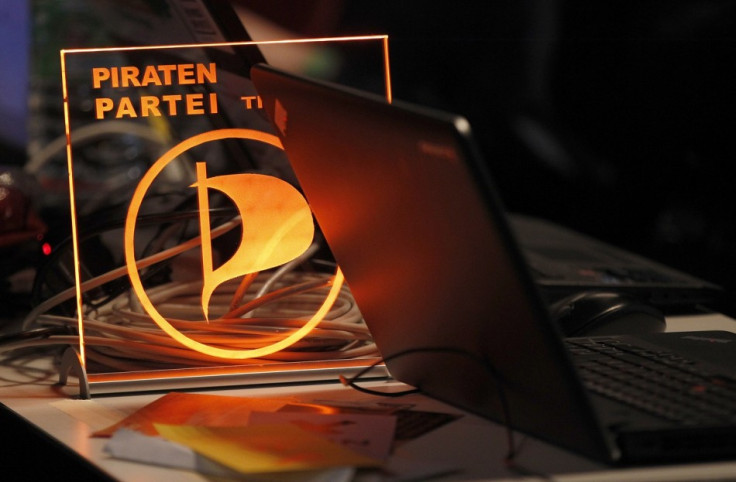Germany Elections 2013: Pirate Party Struggles Despite Edward Snowden
Freedom of internet movement falling short of vote share needed to enter Bundestag

Despite a little help from NSA whistleblower Edward Snowden, election polls show that Germany's Pirate Party is struggling to win the vote share required to enter the Bundestag.
Voting intention figures gathered by pollsters in the runup to Germany's general election shows that support has slumped to a third of the party's high-point figure achieved just two years ago.
The party was formed in 2006 as part of a Europe-wide movement campaigning for freedom of the internet and open access to the political system and reached its peak with voters in 2011 when it won 8.9% of the regional vote in Berlin and 15 seats in the state parliament.
Snowden's revelations about the US snooping on its allies were expected to boost the Pirates' chances on the back of growing anti-establishment sentiment.
In an attempt to exploit that sentiment, party members protested against Berlin's surveillance policies by flying a small camera-equipped drone over Chancellor Angela Merkel's head at her Christian Democratic Union (CDU) party campaign rally in Dresden.
"With the quadcopter flight in Dresden we demonstrated how weird the discussion on security issues is," Volker Berkhout, the Pirate Party's top candidate in the central state of Hessia, told IBTimes UK.
"We tried to give Ms Merkel the feeling of being surveyed. Our simple toy has created hysterical reactions in Germany - while drone killings are employed in other countries."
But with Election Day looming, the majority of polls put the Pirate Party at a measly 2.5% - half the share needed to get into parliament.
The Pirates' campaign has been hampered by a number of controversies and blunders that illustrate a public perception that it is disorganised and disjointed.
Political director Johannes Ponader hurt party credibility badly when he appeared on a leading political TV show wearing open-toed sandals and a scarf and checking his smartphone while supposedly interviewing then environment minister Norbert Röttgen.
But Berkhout remains feisty about party chances.
"During the last four years since the federal elections the party has not only grown from 1,000 to 30,000 members but also to a complete programme in politics. This growth coincided with arguments that have led to the image of the party as being disjointed," Berkhout said.
"We pledge that we will stand for a paradigm shift in surveillance best characterised by the slogan 'freedom not fear'.
"We will translate this principle to further aspect of politics such as [legalising] cannabis and providing a basic income as [part of the] social security system."
The party allows anyone to submit new ideas using an online discussion platform, Liquid Feedback. Proposals are voted on online and turned into a party policy if they get the support of 10% or more of site users.
Berkhout is confident that the Pirate's agenda will put his upstart political movement at the forefront of future politics.
"As the internet continues to thrive and innovate it is vital to ensure the basic principles of the internet remain in line with the principles of free and open societies," he said.
"The Pirate Party has won about 12 % of a youth vote in Germany and is very popular among young Germans. We are very confident that we will continue to lead the discussions in key political issues in the future."
© Copyright IBTimes 2025. All rights reserved.





















